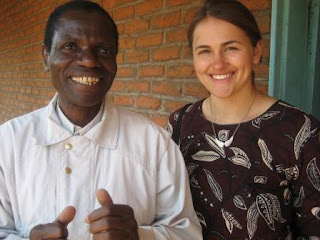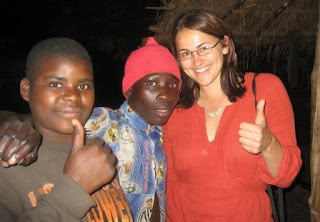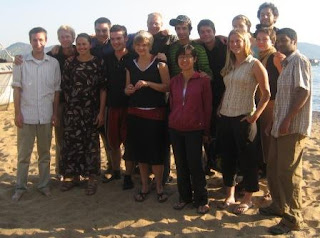A lot has happened over the last couple days. On Sunday I met with Danny; a long term EWB volunteer, and decided to move Nkhotakota to work with him on cassava processing project.
Working at BERDO has been a great learning experience. I had the opportunity to see first hand how a local NGO is able to have positive impact on rural Malian communities. There was; however, no defined work for myself. That was further complicated by the fact that BERDO currently has no major donor to support their projects. July 31st is the final day of the two year project funded by Oxfam. Oxfam has funded a number of BERDO’s projects over the years; however, they have decided to focus funding on the southern region of Malawi and BERDO is considered part of the Central Region. One thing you learn from an experience like this is the development sector is very complicated and sometimes quite political. As of July 31st, the BERDO staff will be divided between those who can afford to become volunteers, and those who will need to look for work else where. It is really disappointing to see such a great organization be put in this position. BERDO, however, will not be beat by this. There are a number of members that will continue to work for the communities even without pay. The communities understand the position BERDO is in and will continue to participate in programs and try and seek funding from other sources. Finally, BERDO has a number of their income generating activities, including a maize mill and number of farms, to help keep some things going until they can find more funding. Their dream is to one day be completely self-sufficient, so that they do not have to rely on donors; very ambitious for any development organization. We were warned before we came here that we might be upset by some of the people that work in development organizations. For a lot of people it just a good job and the beneficiaries are second to their own ambitions. I have talked to other volunteers who have experienced this, but for me it was just the opposite. So in some ways it was sad to leave BERDO, but where I can greater impact is on the project in Nkhotakota, and so here I am.

Yesterday was my last day in Bwanje; hard to know if I will ever be back there again. It was a really nice day. I came into work to take part in the morning devotion one last time. We start off every day with singing hymns and prayer. Even though I am not religious I really enjoy the singing, even when I don’t know what I am actually saying. I said goodbye to all my co-workers. I then went to the secondary school and found my Chichewa teacher Agnes. We walked around town together then spent some time at her house. Her sisters showed me how to pound maize.

In the evening I gave my family some good bye gifts and hung out with Godfred, Lison, Francis, Gifty and Gifty’s sister. The thing they liked the best was this little safety light that flashes. I then got out my camera and we took a ton of photos all over the and outside the house.
Dinner was also pretty special. Instead of nsima, we had chips AND rice, with cabbage and egg relish. I left early (6:30am) on Wednesday morning. The dogs, Bruce and Tiger, accompanied me half way to the mini bus pick up. By noon I was in Nkhotakota. Now on to what I will be doing here.
The project that Danny is working on here is all about cassava. Cassava is a potato like crop; I will have a lot more to write about it in a couple weeks. It is mainly used as a staple crop for human consumption, however, the starch can also be removed to be used in manufacturing. The project is a small processing plant in the Nkhotakota area, to test if this is a viable option for the area and Malawi. There are many areas within this project that need to be dealt with. One of these is dealing with the left over water from processing. The water has a high organic matter concentration, which means if it is directly dumped in a water system it will consume too much oxygen and damage the environment for aquatic life. The other issue is that cassava contains small amounts of cyanide, which will also be in the wastewater. They currently have a system in place to deal with the wastewater, but it is currently being run over capacity. The plant also wants to double production, which means more wastewater to deal with. My goal over the next few weeks is analysis the current system, investigate alternatives, suggest a solution, and possibly over see construction of the design. I am really excited about this project as it is directly related to my studies.
Tomorrow, I will be heading up to Nkhata Bay. I am meeting Preston, another EWB volunteer, who is working on a very similar project for a coffee processing plant. I am hoping to get some ideas and research matterial, as well as advice for a voiding set backs. I start work at the plant on Monday, where I will be working the line to get familiar with the operations.
The other exciting thing is that I get to live with a whole new family and see how their life differs from the family I have been living with so far.
Tomorrow, I will be heading up to Nkhata Bay. I am meeting Preston, another EWB volunteer, who is working on a very similar project for a coffee processing plant. I am hoping to get some ideas and research matterial, as well as advice for a voiding set backs. I start work at the plant on Monday, where I will be working the line to get familiar with the operations.
The other exciting thing is that I get to live with a whole new family and see how their life differs from the family I have been living with so far.


















